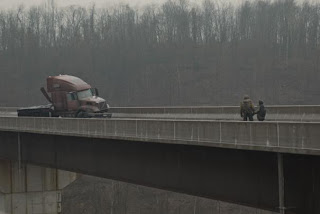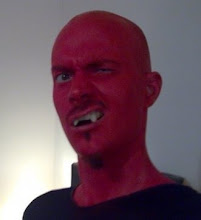All Quiet On The Western Front
All Quiet On the Western
Front (AQOTWF) is practically a template for most modern takes on war, with
many sequences used over and over again, proving that either war rarely changes
or the cinematic depiction of it can’t be bettered.
As opposed to the patriotic
WW2 movies of the 40s and 50s, AQOTWF is the prototype of the anti-war film
depicting war as hell.
A number of sequences are
fully formed that can still be found today - the first clash with authority in
the barracks as the shouty sergeant whips the new blood into shape; the
humiliation and repetition of training; the bullying and violence in training
before the soldiers even get to the front (though here it’s directed at pompous
authority rather than in-fighting between recruits); the idealism of the new
recruits versus the old-hand vets; the realities of war at the front and the
distillation of importance to food and shelter; the shock and horror of death
as it takes people you know, as you take others lives; the psychological breakdown of men by
war, either completely, or into killers.
It’s easy to see how the film
was banned by many countries preparing for the build up to the next war - the
anti-war sentiment is overt, both in the way the war affects the schoolboys we
follow from their classroom to the front, and in the speech given by central
character Paul at the end.
A number of points are
drilled home throughout the film, including the futility of war as the soldiers
go over the top of the trenches with numerous of deaths on both signs but no
ground gained, conversations highlighting how the soldiers involved aren’t even
sure why they are at war and the more obvious affects of deaths and
dismemberment as lives are shattered.
Some of the film is a little
clunky, with the acting in particular a little overwrought, although this is
likely to be a hangover of the move from silent movies to talkies, and the
numerous east coast American accents are very hard to reconcile with the German
uniforms, though I imagine those very accents could have been intentional in
order to acclimatise an American audience and emphasise that ‘they’ are just like
‘us’. But other sequences such as the
trench fighting and no man’s land advances are still unnerving. Due to the
quirk of old cinema where action is comparatively sped up, the hand-to-hand
trench fighting feels particularly vicious, and the scenes of the soldiers
cowering in their fox hole as bombardment goes on seemingly without end helps
you sympathise with the men driven to shrieking madness.
Elysium
After the success of District
9, Neil Blomkamp’s sci-fi critique on racism in South Africa, it’s easy to see
the same slums though on a much larger scale in the sets of Elysium. Los
Angeles of the future is a giant mega-city, but rather than the crumbling
towers of 2000AD, Blomkamp’s vision is of dusty shanty-towns, very reminiscent of
those occupied by the ‘prawns’ of District 9.
Elysium isn’t particularly
original for a sci-fi tale, but neither was District 9 whose closest ancestor
was 1988’s Alien Nation. In the same way that film took an old idea and ran
with it, making it fresh and exciting, Elysium updates one of the oldest tales
in cinema, that of Metropolis and the Time Machine, of Huxley’s Brave New World
and myriad other dystopias involving a downtrodden underclass serving a ruling
class.
Whilst the Morlocks were
underground in the Time Machine, the ruling class of Elysium are above their
servile underlings in another way, orbiting Earth in a ring-world space station
with its own atmosphere.
Although the Elysium station
is a typical sci-fi creation, all efficient robots, clean air and sharp lines,
the main point of difference is the near-magical medical stations which
automatically cure all ills. Healthcare back on Earth is lacking, and whilst
people are desperate to board rickety shuttles just to try and stay on the
heavenly Elysium station, the main driving force is illness and those seeking
to cure it. This all leads to a lump in the throat ending as the Elysium
computer system is told all Earth’s population are now citizens and it sends
out medical ships to the surface to cure everyone in some sort of socialist
wet-dream.
This worldview also
comes out in the ‘worker’s struggle’ vein as our anti-hero, Matt Damon’s Max,
is an ex-gang banger turned honest worker who gets screwed over by the boss on
a robot production line, receiving a fatal dose of radiation for his efforts.
With the help of underworld
contacts he’s assigned the task of kidnapping the CEO of his ex-employers
company for his brain-implanted ID details, with the aid of an exo-skeleton
grafted to his body. Thus begins his struggle against adversity and ultimately
a tale of self-sacrifice.
There’s also a childhood
friend and potential love interest, another cipher for cliche as she
encompasses being a single mother and a nurse as well as a focus for Max’s
efforts.
This back-story serves as a
stable basis to weave a tale based on effects and set pieces, with a rather
fetishised view of military hardware and a number of gory moments.
Matt Damon continues his run
of star turns in the Bruce Willis role of the everyday shmoe in extraordinary
circumstances who racks up a list of injuries, Alice Braga does well in the
inevitably sketchy love interest part and Jodie Foster delivers an atypical
performance as the ruthless politician/military type, but the stand out
performance here is Sharlto Copley, back working with Blomkamp after his star
turn in District 9.
In the role of Kruger (what a
bad guy name!) he shines, in a dirty, brutal way, given that the character is that
of a sleeper unit mercenary, part of a larger South African team who are called
on to do Elysium’s dirty work. It’s in the confrontation between this crew and
Max that most of the weapon idolisation takes place as we are treated to the
effects of future guns and grenades.
Both action and story
complement each other and push each other forward in a satisfying (if expected)
way.
It’s good to see sci-fi based
on ideas again, even if those ideas are recycled.






